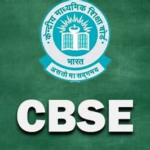
On May 14, Turks will head to the polls to cast their ballots in what is widely regarded as one of the most significant elections in modern Turkish history. President Tayyip Erdogan, who has been in power for over two decades, is facing a formidable political challenge as he seeks to maintain his grip on the country.
The election is expected to be closely contested, with Erdogan’s Justice and Development Party (AKP) facing a strong challenge from the opposition. The main opposition party, the Republican People’s Party (CHP), has formed an alliance with the nationalist IYI Party and the Islamist Felicity Party, and they are expected to mount a serious challenge to the ruling party.
Turks will be electing both a president and parliament for a five-year term.
To win the presidency in the first round, a candidate must obtain more than 50% of ballots cast. If no candidate secures more than half the votes, a May 28 runoff will be held between the two leading candidates Erdogan and opposition leader Kemal Kilicdaroglu.
Voters will also elect 600 members of parliament. They are elected by party-list proportional representation in 87 districts.
Turkish elections are typically monitored by hundreds of thousands of volunteers across the country. Political parties will also have observers.More than 64 million Turks are eligible to vote, including more than 6 million first-time voters. There are 3.4 million voters overseas, who completed voting by May 9.
Voters in Turkey will cast ballots at 190,736 polling stations. Polls will open at 0800 a.m. (0500 GMT) and close at 0500 p.m. (1400 GMT) on May 14.
Turnout in Turkish elections is generally high. In 2018, nearly 87% of eligible voters cast ballots.
The sale of alcohol is banned on the day of the election.
The election comes amid a period of political and economic uncertainty in Turkey. The country has been struggling with high inflation, a weak currency, and rising unemployment, and many Turks are frustrated with the government’s handling of the economy. There are also concerns about the state of democracy in Turkey, with Erdogan accused of cracking down on the media and political opposition.
Results
The High Election Board (YSK) said that on election day, in line with election law, news, forecasts and commentaries about the vote are banned until 6 pm (1300 GMT).
Reports on some aspects of the election are then allowed, but media are only free to report on election results from 9 pm (1800 GMT), which will roll in from across Turkey.
In the run-up to the election, Erdogan has been campaigning vigorously, holding rallies across the country and promising to revive the economy and restore Turkey’s global standing. He has also been touting his record on national security, pointing to Turkey’s military intervention in Syria and its fight against Kurdish militants.
The opposition, for its part, has been highlighting the government’s failures on the economy and its alleged abuses of power. They have also been calling for greater democracy and press freedom, and have accused Erdogan of trying to stifle dissent.
The outcome of the election is uncertain, but many analysts believe that Erdogan could be in for a tough fight. While he remains a popular figure among his supporters, there is growing discontent among many Turks, particularly younger voters, who are frustrated with the government’s economic policies and its crackdown on dissent.
Whatever the outcome of the election, it is likely to have significant implications for Turkey’s future. Erdogan has been a dominant figure in Turkish politics for over two decades, and his continued rule could have far-reaching consequences for the country’s democracy and its relationship with the international community.






